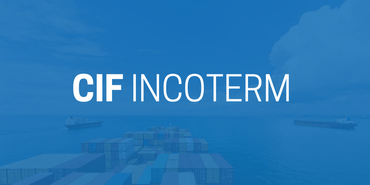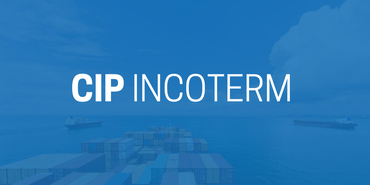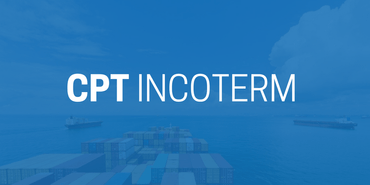
CFR Incoterm (Cost and Freight) - Use and Meaning



![]()
What is the CFR Incoterm (Cost and Freight)
The CFR Incoterm or “Cost and Freight” is an Incoterm that is exclusive to ocean freight shipping.
It states that the seller is not only responsible for delivering the goods to the port specified by the buyer, but also bears the transportation costs of the goods to the destination port.
CFR is nearly identical to CIF, the only difference is that insurance is mandatory under CIF and must be provided by the seller. With CFR, however, insurance is optional.
Common practice dictates that CFR should be chosen over CIF if the buyer is able to acquire better or more affordable insurance and vice versa.
Seller’s obligations under the CFR Incoterm
- Delivery of goods and documents required
- Packaging and wrapping
- Inland transport in the country of origin
- Customs handling fees at origin
- Origin charges
- International freight
Buyer’s obligations under the CFR Incoterm
- Payment of goods
- Destination charges
- Customs handling fees at destination
- Inland transport at the destination country
- Payment of duties and taxes
CFR insurance
Even though Incoterms laws do not mandate for cargo insurance to be provided under CFR, it is recommended for international ocean freight shipments to be shipped insured.
The shipments may be covered entirely by one single policy obtained by the buyer or seller, or by two separate insurance policies taken out by both the buyer and seller to cover their respective responsibilities.
Make sure that insurance terms and conditions are clearly defined and specified when negotiating your sales contract.
CFR unsuited for containerized cargo
Unlike many of the other Incoterms, the risk transfer point of the CFR Incoterm differs from the cost transfer point. With CFR, risk is transferred when the goods are loaded on board the shipping vessel at origin.
It should only be used in situations where the seller has direct access to the vessel such as bulk cargo shipping when goods are loaded directly onto the vessel instead of dropped off in a container at a terminal prior to loading. As such, the CFR Incoterm is not suitable for containerized cargo.
Related Articles


